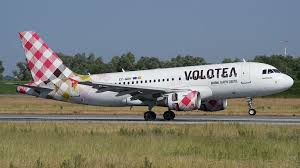UK visa shift creates rare chance for MBA hopefuls without dependents

London: Almost half of U.K. business schools reported missing their targets for enrolment of international students. What’s bad news financially for the U.K. may be your biggest opportunity.
As of January 1, 2024, only students pursuing a doctorate or a research-based higher degree can apply to bring a spouse/partner and minor children to the U.K. This implies that students arriving to study for an MBA cannot bring their families.
The intention of the change in regulation was to limit the number of dependents arriving, which has exploded in recent years. An unintended effect, however, may be the exclusion of international students whose higher rate of tuition helps U.K. universities pay the bills.
The ICEF, which provides market intelligence on international student recruitment, reports a rather startling statistic:
“More than four in ten UK business schools say that they will miss their 2023/24 recruitment targets for non-EU students.”
The ICEF Monitor continues: “Most respondents to a recent survey say that the government’s decisions to limit visas for accompanying dependents as of January 2024 is a factor.”
Adam Markus, graduate admissions guru and president of the Association of International Graduate Admissions Consultants, had this to say in correspondence on WhatsApp: “The impact of the U.K.’s visa regulations has been very significant both positively and negatively for my clients, who are primarily coming from India and Japan.”
Markus’ reasons, however, are different from what might be expected.
“In prior years,” wrote Markus, “many Japanese clients who were company-sponsored for their MBA applied to and attended London Business School, but now this number is down significantly, as this segment includes many who are married, often with children, and look at the MBA experience as a family experience.”
Company-sponsored applicants are attractive to MBA programs. They bring their own funding, and so, far from drawing on the program’s financial aid, they contribute to the coffers of the school. And because they are already employed, the program does not need to be concerned about finding jobs for them. In short, they are being locked out, although they are not the perceived problem.
“Such applicants now focus either exclusively on U.S. schools or may look at other longer programs in Europe,” said Markus, “especially IESE and HEC. In general, for international applicants with families, INSEAD is also going to be a big winner here, because it is LBS’s primary non-U.S. rival in the minds of most applicants who are fine with a 10-12 months program.”
Some speculate that the country to which Indians might turn is Canada, which was the number-one destination for Indians studying abroad, until a recent diplomatic rift between the two countries slowed the flow of Indian students to Canada. But although the situation may change, the visa bottleneck is a serious issue, especially for students hoping to begin in early 2024.





